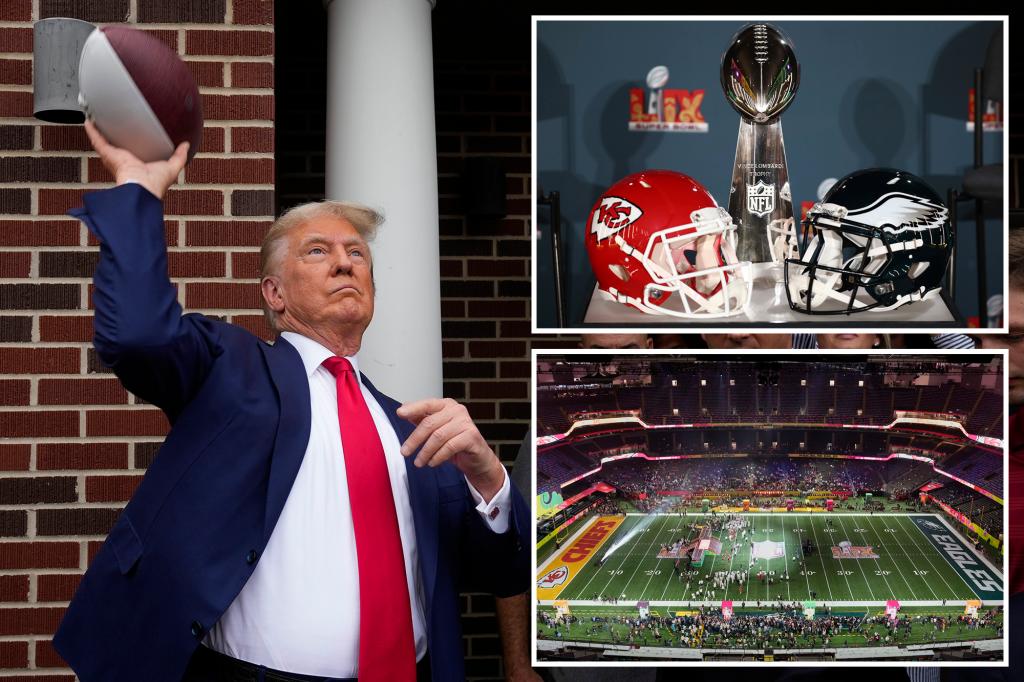The upcoming Super Bowl in New Orleans is poised to be a historic event, with President Trump planning to attend, marking the first time a sitting US president will grace the nation’s biggest annual sporting spectacle. This unprecedented presidential presence adds a significant layer of complexity to the event, particularly concerning security arrangements. The timing of the game, just over a month after a devastating ISIS-inspired terrorist attack in New Orleans, heightens the security concerns and necessitates a comprehensive and robust security protocol. While vice presidents have attended the Super Bowl in the past, a sitting president’s attendance is a novel occurrence, underscoring the magnitude of the event and the president’s interest in engaging with this prominent cultural phenomenon.
The historical context of presidential and vice-presidential attendance at the Super Bowl provides a backdrop to President Trump’s planned appearance. Three vice presidents – Spiro Agnew, George H.W. Bush, and Al Gore – have previously attended Super Bowl games, witnessing historic moments in football history. Agnew, a fervent Baltimore Colts supporter, watched his team clinch a narrow victory in 1971. Bush witnessed the San Francisco 49ers’ inaugural Super Bowl triumph in 1982. Gore, in 1994, witnessed the Dallas Cowboys’ dominant victory over the Buffalo Bills, marking the Bills’ fourth consecutive Super Bowl loss. These past attendances highlight the Super Bowl’s significance as a national event, drawing interest from high-ranking government officials.
While President Trump’s attendance marks a first for a sitting president, former President George H.W. Bush participated in the coin toss at Super Bowl XXXVI in New Orleans in 2002. This previous involvement of a former president in Super Bowl festivities underscores the event’s enduring appeal and its ability to draw prominent figures from the political sphere. The fact that this particular Super Bowl also took place in New Orleans draws a parallel to the upcoming game and emphasizes the city’s historical connection to the Super Bowl and its ability to host such high-profile events.
The security implications of President Trump’s attendance are substantial, given the recent terrorist attack in New Orleans. The New Year’s Eve attack, which claimed the lives of 14 people and injured many more, casts a long shadow over the upcoming Super Bowl. The need to ensure the safety of attendees, including the president, will require a significant deployment of security personnel and a meticulous security plan. The federal law enforcement agencies involved will undoubtedly draw upon their experience and resources to mitigate potential threats and ensure a safe and secure environment for the game.
The intersection of politics and sports in the context of the Super Bowl raises interesting questions about the president’s motivations for attending such a high-profile event. The Super Bowl provides a massive platform for visibility and engagement with a broad audience. For a president, it offers an opportunity to connect with the American public on a non-political level and demonstrate an interest in a cherished national pastime. The president’s presence can also be interpreted as a show of support for the city of New Orleans, particularly in the wake of the recent tragedy, signaling resilience and a return to normalcy.
In conclusion, President Trump’s planned attendance at the Super Bowl in New Orleans marks a historic occasion, bringing the office of the presidency to America’s biggest sporting stage. While vice presidents have attended in the past, a sitting president’s presence is unprecedented and adds a new dimension to the event. The recent terrorist attack in the city necessitates heightened security measures, ensuring the safety of all attendees, including the president himself. This confluence of sports, politics, and security concerns makes the upcoming Super Bowl a particularly significant event, both for the city of New Orleans and the nation as a whole. The president’s decision to attend underscores the Super Bowl’s cultural relevance and its ability to transcend the realm of sports and become a focal point of national attention.

